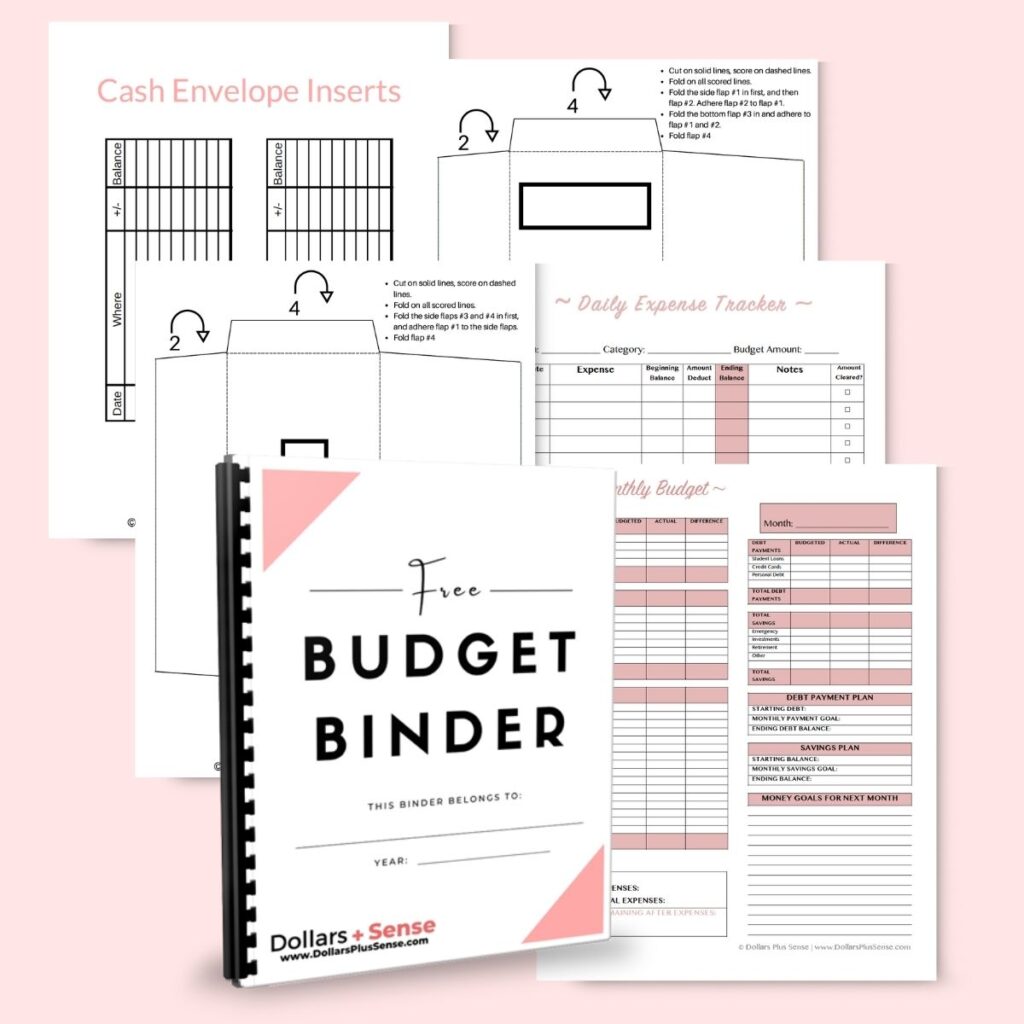Last Updated February 23, 2023
What do you do if you can’t seem to get your spouse on the same financial page as you? In this article, I’m going to share with you 9 simple ways to get your spouse on board with budgeting.
How To Get Your Spouse On Board With Budgeting
1. Be Nice
The first thing you need to do when trying to get your spouse on board with budgeting is to be nice and speak to each other with respect. The goal is to manage your money, not your spouse; so don’t let this conversation turn into an argument.
You want to express your feelings, but you have to think about what you say and how you say it. After you say your part, listen to your spouse. You can’t work on making a budget together if you’re the one doing all the talking.
This isn’t a lecture—you’re trying to work together.
Also, don’t play the “blame game”. It doesn’t improve the situation if all you’re doing is placing the blame on your spouse. This approach will make your spouse feel defensive and more resistant to the budget.
You want your spouse to come to the table with a positive attitude and be open to your approach moving forward. So if you want your spouse to get on board with budgeting, stop placing blame and focusing on the past.
2. Talk About The Benefits Of A Budget

It’s so much easier to get your spouse on board with budgeting if you talk about all the benefits of budgeting—as opposed to saying “we need to stick to a budget.”
When people think about budgeting, they think of it being extremely restrictive—almost like a financial diet (and no one likes diets). So ask your spouse what are some of the things they really love to do? What are they passionate about?
Maybe it’s traveling, being able to stay home with the children, or giving back to a specific cause. Whatever that passion is, explain to your spouse how being financially stable can help them pursue all those things and more.
3. Set Up Budget Meetings
I recommend you sit down with your spouse every week and talk about your budget. During this meeting, discuss your progress towards your financial goals. Are you still on track with your budget? If not, see where you fell short and how you can improve next time.
In order to analyze your progress towards your financial goals, it is important that you both take part in tracking your spending. Talk about how much you have left in each category and any upcoming expenses you have.

As you get better at working together and sticking to your budget, these meetings can be shorter and less frequent. If one spouse makes a mistake, remain calm and don’t dwell on it. Just find a solution, and move forward.
4. Create Goals Together
I think this is one of the most important things you can do to get your spouse on board with budgeting. It is so important to set goals that you can work on as a couple because it will keep your spouse motivated to stick to the budget.
If you’re just limiting spending and sacrificing for no clear reason, your spouse will start to question what’s the benefit of budgeting. As a result, they will start to overspend again.
Some good goals you can work together are:
- Buying a house
- Starting a family, or
- Plan for retirement (I say push even harder and plan for early retirement!)
Once you set your goals together, make it clear when you want to meet each of your financial milestones as a couple.

5. Determine Household Necessities
When setting up your budget as a couple, you have to start by determining your needs as a household. What are your household necessities?
Some examples of household necessities are things like:
- Mortgage or rent
- Transportation costs
- Utilities, and
- Groceries
This can be difficult to come to an agreement on because one spouse may want to live cheaply, while the other more lavish. It’s important that you get on the same page here before moving on to other aspects of your budget.
6. Determine Individual Needs
Once you have come to an agreement regarding the household needs, start working on determining individual needs. What are some of the things you want included in the budget as individuals?
Some examples of individual needs (and wants) are:
- Clothes
- Hair
- Nails
- Spa
- Gym
- Entertainment, and
- Dining out
This is where things can get really tricky. Don’t give your spouse a hard time about how much they spend on fast food while you continue to spend what they think is too much on clothes.
It’s important to understand that your wants and needs will probably differ from each other. So that brings me to my next point—you’re going to have to compromise.
7. Compromise
For a family budget to work, everyone has to be equal. Equality makes it easier for you and your spouse to stick to the plan. So in order for both parties to feel equal and positive about the budget, there will probably need to be some compromise.
Listen to your spouse and understand what’s important to them. Then make sure each person is allowed some money to spend on the things that are important to them.

If your spouse is a spender, I recommend you try the cash envelope method.
Break down how much money your spouse can spend on the things that are important to them into weekly amounts. By using the cash envelope method, when the money is gone, both you and your spouse will have to stop spending.
As long as each person is sticking to the agreed amount of money they can spend on their individual needs, there’s no reason to fight about how that money is spent. You also don’t have to worry about nagging your partner to stick to the budget.
You can download a set of FREE cash envelopes in my Resource Library to get started. When you sign up and I’ll send you the password to my secret library loaded with over 20 pages of easy to print worksheets, checklists, and money-saving tips.
8. Work Together
If you want to get your spouse on board with budgeting, you’re going to have to work together. An easy way to do that is to create a budget spreadsheet online that you can both access.
I recommend trying out my Monthly and Yearly Budget Spreadsheet. With these spreadsheets, you can assign budget categories and spending limits, set savings goals, compare actual vs projected expenses, and more – all in one place. It’s designed to be shared with your spouse so that you can easily collaborate and keep each other informed with real-time updates.

9. Lead By Example
Sometimes the best way to get your spouse on board with budgeting is to just lead by example. If your partner sees how much you’re benefiting from budgeting, paying down debt, and investing, they may eventually start to show some interest and jump on board.
10. Speak To A Professional
Finally, if you’re still struggling with getting your spouse on board with budgeting at this point, you may need to seek help from a professional who’s an outside source. Start with a financial coach where you have joint sessions and meet together to come up with a plan for your money.
I invite you to join my membership support group to learn more about the areas you’re doing well financially and the areas in need of improvement. It is sometimes easier for a husband to hear this kind of advice from a well-known expert rather than from their wife.
If all else fails, and you still can’t get your spouse on board with budgeting, you may need to speak to a counselor. There may be an underlying problem that’s even bigger than money that you’re not even aware of.
Counseling can uncover deeper issues that your spouse may be trying to cope with by overspending.
Summary
Budgeting as a couple can be much harder than budgeting on your own. You have to change your mindset from only thinking about your wants and needs to considering the needs of your spouse. Having both spouses on board with budgeting will not only help you reach your financial goals faster but also create a strong foundation for your relationship as well. Having transparency in terms of finances and understanding each other’s needs can help bring couples closer together and become more financially secure as a unit. Try some of these tips and get your spouse on board with budgeting today!
Related Articles:
- How I Use My Monthly and Yearly Household Budget Spreadsheet
- Reverse Budget: How To Make A Budget When You HATE Budgeting
- How To Choose The Right Budgeting System For You: 5 Budgeting Systems
If you want to remember this article, pin it to your favorite Pinterest board.








